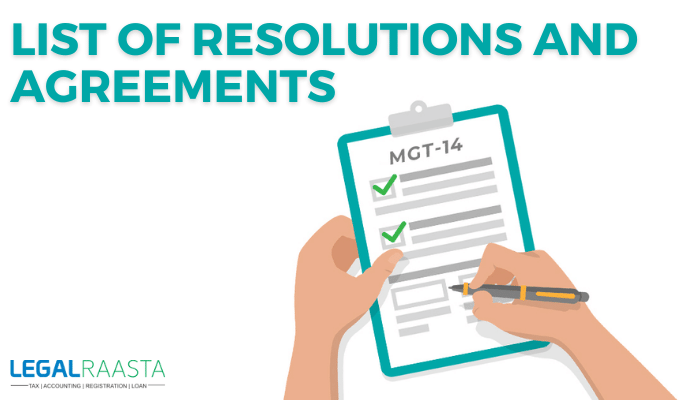Exemptions Private Limited Companies are Entitled to under Companies Act, 2013
The Companies Act of 1956 was no longer serving up to be of use in the current economic and corporate scenario of India. The government hence, introduced the Companies Act 2013, in an attempt to refresh the antiquated laws and introduce much-needed reform. The new Act was also brought into the mix to deploy ease of doing business in India. For this, many measures were introduced like One-Day Company Incorporation and a simplistic Company Incorporation Procedure. One of the outcomes of this act was exemptions private limited companies are now eligible for. Let's look at some of these exemptions private limited company enjoys and how it can impact their operations.
Related Party Transactions
The Companies Act of 2013, dictates that board approval or a shareholders resolution is required for related party transactions. The government has made modifications to this rule by tweaking the definition of related parties in the clause (76) of Section 2 for section 188 of the Companies Act. Therefore, Private Companies with exempted entities no longer come under related party transactions and do not need to comply with section 188.
Exemption
The whole contracts or agreements between the private company and exempted entities such as holding, associate and subsidiary companies to a holding company, a subsidiary of the private company will not need to get board of directors' approval or shareholders special resolution. Section 188 is no longer a compliance requirement for Private Limited Companies. With the exemption on related parties shareholders under the provisions of section 188 lifted, related parties have also been empowered with the power to vote at any General Meeting of the shareholders to approve/disapprove the transactions between the company and a related party.
Note: Key Managerial Personnel, Directors, Relatives of the same will continue to come under the scope of a related party even though exempted entities have now been excluded from the definition of a related party.
Impact of this Exemption
Transactions of a Private company with the following will not be considered as a related party transaction:- Holding Company of Private Company
- Associate Company
- Subsidiary Company
- Fellow Subsidiary Company.
The amendment to allow the voting from the related parties comes as a huge sigh of relief to private companies where there are multiple parties who are related to each other in one way or another and there are rarely any parties who are disinterested with the proceedings.
Share Capital
Section 43 of the Companies Act, 2013 dictates that companies are allowed to have two types of shares i.e. Equity Shares and Preference Share Capital. Read More about Authorized Share Capital for Company Registration.
Previously, subject to a few conditions, voting was allowed on the equity shares with or without the differential right to the dividend. The section 47 of the Act also lays down the voting rights with equity shareholders entitled to vote on all resolutions, however, shareholders with preference shares were allowed to vote only on resolutions affecting their rights. Preference shareholders were also allowed to vote on matters of company's closing or if there is a reduction in the capital of the company in accordance with the Companies Act,2013.
Exemption
New exemptions private limited companies are now entitled to dictate that both the clauses mentioned above will not be applicable to these types of companies if the Memorandum Of Association(MoA) and Articles of Association of the company provide such provisions. Thus, private companies are free to hold any kind of share capital as long as they are in accordance with the charter of the company(MoA). In conclusion, Private Limited Companies are free to issue any kind of shares as long as they are capable of producing the relevant charter documentation providing for such provisions.
Impact of Exemption
These exemptions private limited companies are now benefiting from will empower the companies looking to attract investments to issue special classes of shares to their investors. The relaxation is also said to have reduced the difficulty in structuring the taxes and will also allow priority on dividend, liquidation and voting rights on an as-if converted basis. The exemptions are also said to have enabled companies to structure the returns and liquidation preferences in order to better suit the foreign investor.
Public Deposits
The Companies Act has specifications allowing for acceptance of deposits from their members under certain conditions listed out in the provisions of Section 73 of the Act. These conditions pertain to the financial position, Credit rating, the deposit repayment reserves, deposit insurance, and certifications etc.
Exemption
In a notification of exemption, specifications dictate that provisions under section 73 of the Act will not be applicable to private limited companies accepting deposits from their members which amount to less than 100% of the paid up share capital of the company, as well as, the free reserves. However, in addition to this exemption, private limited companies have, they need to file these details of deposits from the members with the concerned Registrar of Companies.
The Companies (Acceptance of Deposits) Second Amendment Rules 2015 exempted deposits received from relatives of directors of a private limited company provided the relative furnishes a declaration that the money deposited to the company is not from any source like borrowing or via a loan accepted from another party. The company should also disclose the amount of this money in the board's report. The Companies (Acceptance of Deposits) Amendment rules, 2018 also specified attaching Auditors Certificate to the DPT-1 form.
Meeting Requirements
Private Limited companies have to hold Annual General Meetings (AGM) every director is aware of that. However, initially, the act had not disclosed the procedures for convening the general meetings. Surprisingly, the Companies Act of 1956 had these procedures listed out in them which empowered private companies to decide their own procedures for the meetings.
However, to correct this anomaly the government in an amendment to the Companies Act of 2013, reinstated the power for the companies to decide upon their own procedures for holding the general meetings by including these provisions in their Articles of Association.
Here are the relevant provisions for the amendment:-- Section 101: Notice of General Meeting
- Section 102: Statement Annexed in the Notice
- Section 103: Quorum for the Meeting
- Section 104: Chairman of Meeting
- Section 105: Proxies
- Section 106: Restriction on Voting Rights
- Section 107: Voting by Show of Hands
- Section 109: Demand for Poll
These provisions will NOT be applicable for Private companies Companies anymore. Hence a reliving exemption private limited companies can now take advantage of for smoother business.
Impact of the exemption
The exemptions private limited companies have been granted empowers them with the flexibility to decide their own procedure for conducting the general meetings by incorporating the same in their Articles of Association. Therefore, these companies should amend their articles and other documentation to incorporate the self-decided procedure.
Resolutions and Agreements
The section 117(3)(g) of the Companies Act, 2013 previously indicated that companies are required to file the copies of their board resolutions and agreements pertaining to certain matters of section 179(3) of the Act with the Registrar of Companies(ROC). It used to be a part of the ROC Compliances that a company has to file.Exemption
The exemptions Private Limited Companies have, dictate that they are now exempt from filing any board resolutions and/or agreements with the Registrar. Therefore, now, private limited companies DO NOT have to submit board resolutions and agreements with respect to the following:
- Making calls on Unpaid shares
- Security Buy Back Authorization
- Issuance of Securities
- Company' Fund Investment
- Granting of Loans
- The Guarantee or Security for Loans
- Financial Statement Approval Diversification
- Acquisition or takeover of any other company
The exemptions also include any other matters related to Rule 8 of the amended Companies (Meetings of Board and its powers) Rules, 2014. You can also have a look at the updated Companies (Meetings of Board and its powers) Rules, 2018
Basically, Private Limited Companies are now exempt from filing the online MGT-14 form with the Registrar of Companies with regards to the above-mentioned issues.
Impacts of the exemption
Private Limited Companies are now exempt from the compliance requirements of the general meeting this also means that the public access to the Board Meetings of a company is now restricted and is aptly given some privacy.
Auditor Eligibility
The Companies Act of 2013, Section 141(3)(g) dictates that an auditor in full-time employment at another firm or is responsible for the auditing of more than 20 companies is no longer eligible to be an auditor of a Private Limited Company. The restriction also stretches to auditing firms, partners or partnership firms.
Exemption
The exemptions private limited companies have now loosens these restrictions on the auditor eligibility. Following companies can appoint any eligible auditor as their company's auditor irrespective of the 20 audits limit imposed.
- Dormant Company
- Small Company
- Private Limited Companies with paid-up share capital less than Rs. 100 Crores.
Impact of the Exemption
Private Limited Companies can now easily retain the same statutory auditor that they were continuing within the past. This exemptions private limited companies now benefit from, also offer an initiative for Auditing firms to expand their circle and area of business reach with more and more private limited companies looking to hire auditors for a long-term duration.
Directors
Exemptions private limited companies are now reaping the benefits of provisions with regards to the Directors of the company. These fall into 3 broad categories- Appointment of Directors
- Interested Director's Participation in Meeting
- Loans to Directors
Appointment of Directors
The section 160 of the Act dictates that individuals wishing to run for the directorship of the company have to serve a 14-day notice period and also have to pay up and deposit an amount of Rs. 1 lakh. The provision for notice period isn't applicable for retiring directors. In addition to this, the section 162 of the Companies Act also states that the appointment of two or move directors has to be voted for individually and cannot be cleared in one resolution even though it might be cleared unanimously by all the members.
Exemption
The exemptions private limited companies enjoy identify the flaw for private limited companies and has issued exemption removing the need to serve the notice period and depositing the Rs. 1 lakh amount to run for the directorship of the company. In addition to this, the restriction for voting for the appointment has been lifted.
Impact of Exemption
Private Limited Companies will have lesser compliance requirements for the appointment of new directors.Interested Director's Participation in Meeting
The section 184(2) of the Companies Act, stated that the director or directors of the company were instructed to declare their nature of interest with the company with which they have entered into a contract and/or arrangement is entered into either directly or indirectly in association with the company.
These directors were also restricted in participating in the board meetings or discussing the contract/agreement. This compliance requirement was not only tough to comply with but was also pretty harsh. It was also particularly difficult for private limited companies with two directors with either one or both directors disinterested.
The restriction was particularly applicable for directors holding more than 2% of the shares of the company who have an interest in the company or a body corporate or the special position in the company like being the Chief Executive Officer (CEO), promoter.
Exemption
An exemption private limited companies benefit from allows the participation of the interested director of a Private Limited Company in the board meetings of the entity after they have disclosed their interests. However, the participation is always subject to the concerned director providing the disclosure of interests in the prescribed forms.
Impact of the exemption
The exemption empowers private limited companies to overcome petty and peculiar compliance issues with regards to related party contracts.Loans to Directors
Section 185 of the Companies Act dictates and prohibits the private limited companies from issuing loans to directors or any other person the director might be interested in. This section of the act also restricts/controls the issuance of any sort of guarantee or security with regards to the loans acquired by the company or other interested parties.
Exemption
Exemptions private limited companies are now entitled to with regards to section 73 dictate that private limited companies can grant loans against the following conditions:- Shouldn't have any other body corporate shareholder in the lending company
- Subject to the conditions that borrowings of the company from banks or any other financial institutions have to be less than twice of their paid-up share capital or Rs. 50 Crores whichever figure is lower.
- The company is not in default of repayment of any borrowings at the time of handing out the loan to any director.
Power of Board
The Section 180 (1) of the Companies Act required for the board of directors of a particular company to declare with and get the approval of the shareholders at general meetings through special resolutions for the following.- Transactions inclusive of sale, lease, and disposal of the undertaking of the company whether it is whole or substantially whole undertaking of the Private Limited Company
- Investment of the remuneration received via a merger or amalgamation via trust securities
- Borrowing money exceeding the aggregate of the company's paid-up share capital and free reserves.
- Remitting the loan or extending the time for repayment of any loans issued to directors or related parties.
Exemption
As a part of the exemptions private limited companies have, they DO NOT have to take approval of the above-mentioned subjects related to the company.Impact of the Exemption
This exemption to private limited companies will enable them for ease of operations and streamlining their time and resources better by avoiding delays incurred by waiting for shareholder's approval.Senior Management Appointment
Section 196(4) of the Companies Act of 2013, dictates that to appoint a Manager, Managing Director or Whole Time Director shareholders need to approve this decision in a general meeting. The terms and conditions under schedule V of the act also regulated the appointment of such senior management staff.
Non-Compliance with the schedule V will result in the body corporate having to obtain the approval of the central government for the appointment of such senior staff. Companies also have to file a return of the appointment with the Registrar of Companies (ROC) within the prescribed format.
Section 196(5) of the act also dictates Non-approval of the shareholders for any particular appointment of senior staff led to the invalidation of any previous decisions made by the existing senior staff.
Exemption
As a part of exemptions private limited companies are now entitled to, these organizations no longer have to have shareholder's approval for either of appointment or deciding the remuneration of the Managing directors in a board meeting or general meeting. In consequence of this exemption, Private Companies do not need to get the Central Government's approval for appointment even though they might not be conforming to the regulations listed under the schedule V of the Act.
Impact of the Exemption
A flexibility for the appointment of directors has been deployed for private companies along with that, compliance requirements for Private Companies have been made easier.
Company Seal
Affixing the company's seal on the certain documents such as the bill of exchange, shares certificates have been made optional as per exemptions private limited companies now enjoy. According to this exemption, the company seal on all such documents can be replaced by a signature of two directors or it could also be the approval of one of the directors and the Company Secretary(CS).
Conclusion
In India, Private Limited Companies are a very popular form of business structure chosen by many entrepreneurs. In an attempt, to enable the ease of doing business in India several relaxations and exemptions were introduced in the budget as well as compliance requirements. The government hence is placing their faith in the startup community of India and are helping them with empowering regulations to help them push the economy towards a better future. Get a head start on your Company Registration with LegalRaasta, simplifying legal journey! Call +91-8750008585 to get started now.









